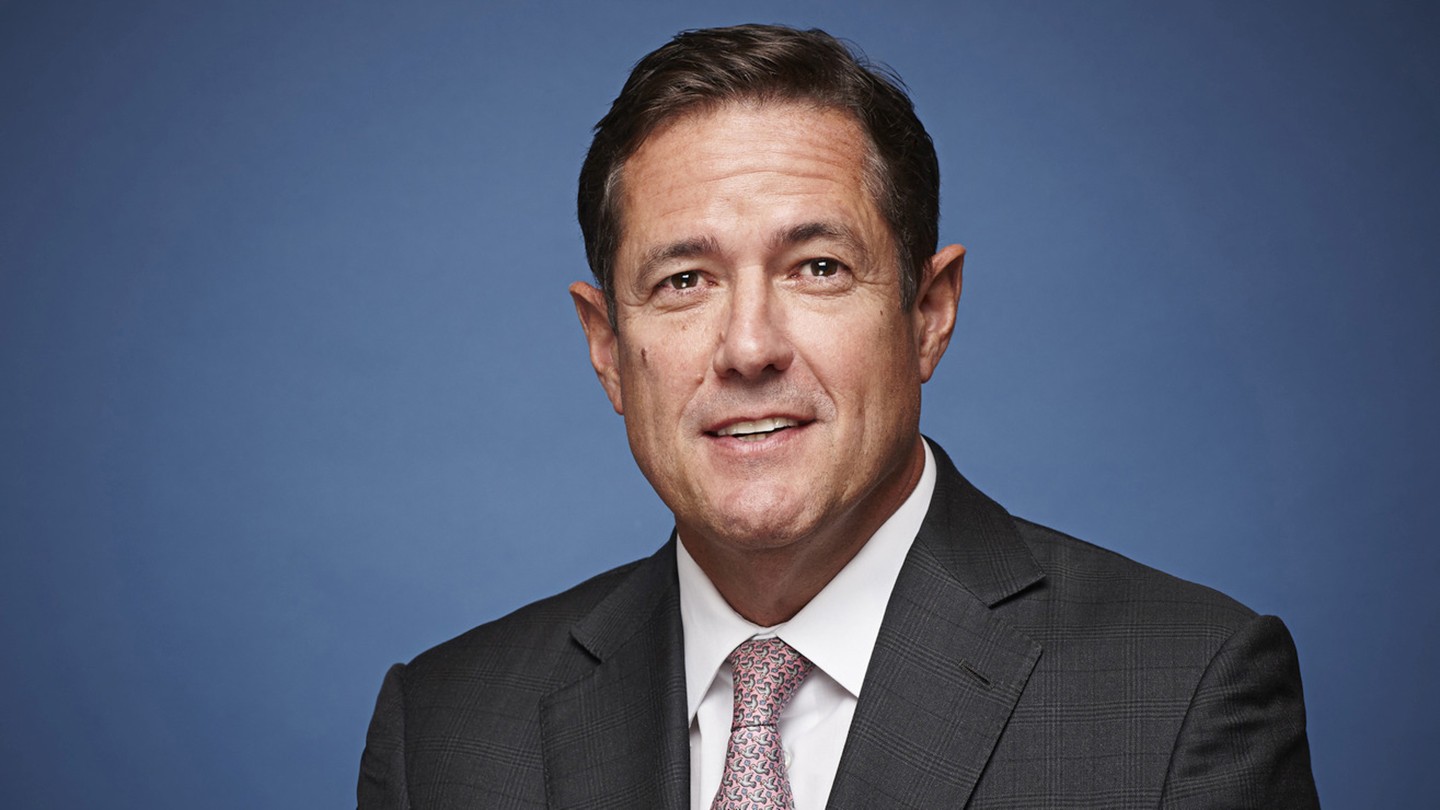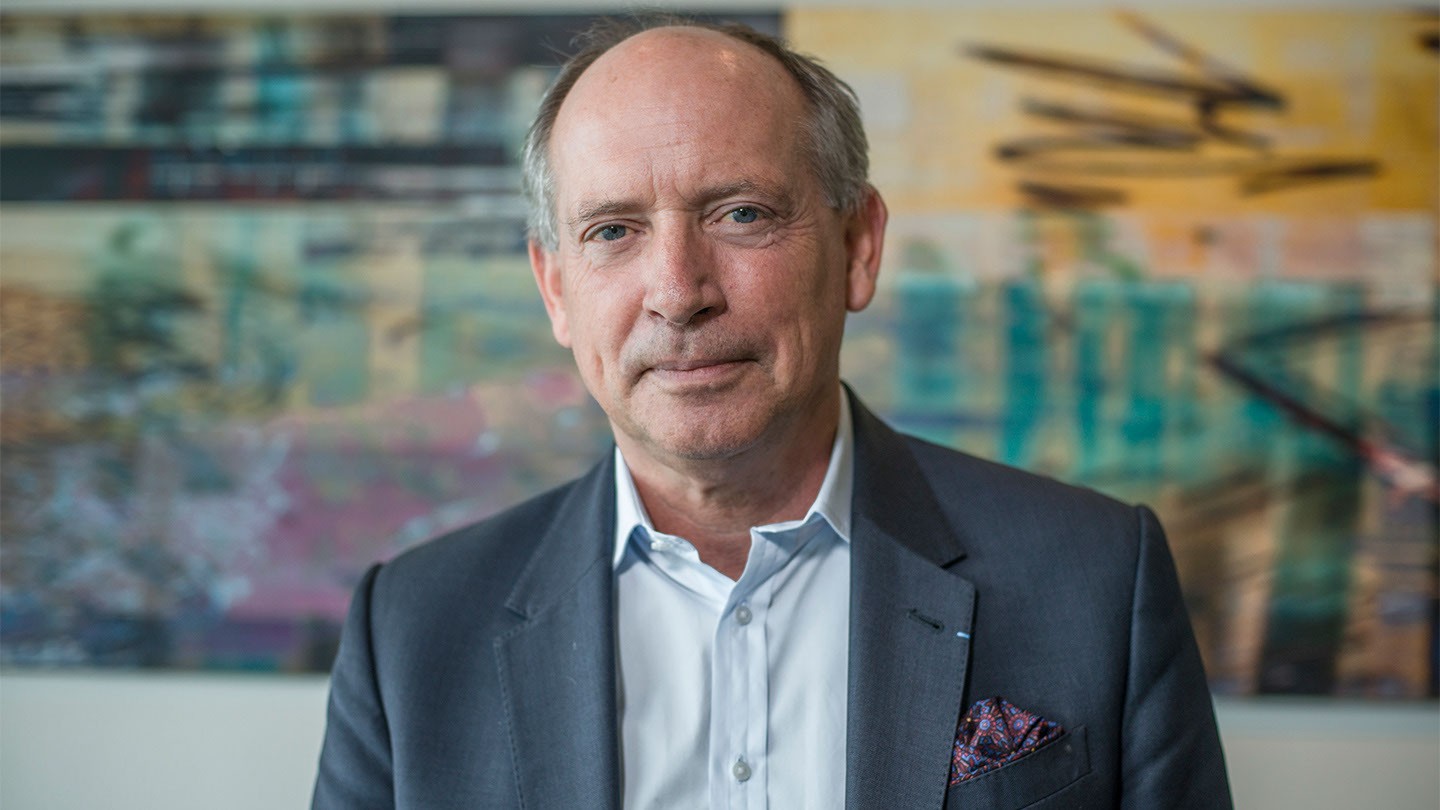
innovation
Uncertainty is the new reality
Clients, influencers and technologists from around the world tuned in to watch Barclays’ seventh annual New Frontiers conference live last week. From how “data is changing the world” to the race to zero carbon – we share seven key takeaways from the day’s event.
“The pandemic has shown us the importance of embracing technology, but also employing it in a sustainable way,” said Barclays Group CEO, Jes Staley, opening the bank’s New Frontiers 2020 conference.
Technology and sustainability, which Staley called the two “megatrends”, were the themes of the day, as clients, partners and colleagues were welcomed onto an online platform featuring high-level speakers from IBM, Google and the Green Finance Institute, as well as the entrepreneurs and technologists who are set to define the future.
1. Cloud now, AI, blockchain and quantum to follow
IBM CEO Arvind Krishna shared his insights on the comparative maturity of technologies with Barclays’ CEO of Consumer Banking and Payments, Ashok Vaswani. “There are two tectonic forces changing technology – and I’ll include banking as technology because you harness technology for your clients – disrupting everything,” said Krishna. “One is called cloud and the other is artificial intelligence.
“With cloud, the world is 20% in with 80% to go. That means we’re at the point of massive scaling so that’s where the money is today. If I took a snapshot, on AI we are 4% into the journey. All of it is in front of us for our clients and ourselves. Blockchain has yet to make its mark, but for me the excitement on blockchain is in the supply chain not the ‘money’. Quantum computing is in the pipeline three to five years ahead of us. So, cloud now, AI coming, blockchain about to come, and quantum down the road.”

The pandemic has shown us the importance of embracing technology, but also employing it in a sustainable way
Barclays Group CEO
2. Uncertainty is the reality
Delivering the conference’s closing keynote, Lord Victor Adebowale CBE, the Chair of Social Enterprise UK, said that the COVID-19 pandemic proved something he had long thought: “Uncertainty is the reality. It’s the natural state of things.”
“That means a business has to think of itself not as an isolated island in a sea of uncertainty, but as part of that system,” he continued. “The days when businesses could avoid social responsibility and stakeholder value are over. One of the reasons for this is digital. It’s possible to find out anything, and you have to look after your image and the reality behind that image to progress. People are caring more about what corporates do, and their outcomes.”
This means “gaining traction with the communities who buy your services”, said Adebowale, and “engaging with those communities and understanding how they work”.
3. “Every part of industry needs to recalibrate and it all requires finance”
A lunchtime conversation between Barclays Group Head of Public Policy and Corporate Responsibility, Sasha Wiggins, and CEO of the Green Finance Institute, Dr Rhian-Mari Thomas OBE, brought further insights into the future of sustainability, and its relationship with both new technologies and the financial sector. “Transition to zero carbon is entirely reliant on technology,” said Thomas. “Every part of industry needs to recalibrate and it all requires finance.”
Thomas cited UN Special Envoy for Climate Action and Finance and former Governor of the Bank of England, Mark Carney, saying the required investments in the energy sector alone amount to US $3.5tn a year, while fully building out the global infrastructure to support all the electric vehicles we need could require $11tn in investment before 2050. On the other side of the equation, Wiggins pointed out that Barclays’ recent £400m Green Bond was five times oversubscribed.
“The race to net zero is on,” said Thomas, “and there’s a momentum that feels completely unstoppable. In the financial sector we’re used to cycles, but the climate agenda is going in one direction, it’s based on immutable laws of physics.”
Will the startups and newcomers be the way forward or do the incumbents in the energy space still have something to offer? For me, one of the best solutions is still for the two to work together
Managing Director, Equity Research at Barclays Investment Bank

4. The ‘megatrends’ pointing to net zero
New Frontiers panels looked at areas at the intersection of technology and sustainability as varied as the changing nature of cities and the use of big data in healthcare. But one of the more obvious sectors where the ‘megatrends’ meet is in energy transition. Lydia Rainforth, Managing Director, Equity Research at Barclays Investment Bank, said she expects “the pace of change in energy markets to accelerate, with renewables the fastest growing part of the mix. With scale, comes opportunity for those traditional gas companies to transform their businesses in a meaningful way. Yet, there are startups in the same area that have made inroads and are already establishing themselves as leaders in the field.”
“Will the startups and newcomers be the way forward or do the incumbents in the energy space still have something to offer?” she asked. “For me, one of the best solutions is still for the two to work together.” This helps blend the reach and remote engineering capability of traditional oil and gas companies with the new solutions and technology of startups to fuel ambitions to hit net zero.
5. Moving beyond take, make and waste
“We have a growing recognition that our current linear economic model of take, make, waste serves neither ourselves, our companies nor our planet,” said Damian Payiatakis, Barclays’ Head of Impact Investing. Moderating a panel on commercialising the circular economy, he highlighted the concepts of circular and ‘cradle to cradle’ design, coined by speaker William McDonough, which sees materials continuously recycled, “offers the possibilities of abundance and growth – and the aim to do ‘more good’ rather than simply ‘less bad’”.
In light of increasing government action to address environmental degradation across the globe, and consumer-driven trends towards sustainability, panellists suggested that new circular economy business models would continue to emerge and be commercially attractive.
“Looking ahead, what I think is really interesting is how we see other sectors being influenced by the circular economy,” said Hiral Patel, Head of Sustainable and Thematic Investing within Equity Research at Barclays Investment Bank, who also saw social activism as “no longer just a Gen Z issue” and saw the circular economy as not just a sustainability issue, but a financial one, with opportunity to improve margins and increase revenue.

Sometimes smaller companies don’t realise exactly how much they can ask of larger corporates
Chairman of Barclays UK
6. Data is still “our most underused resource”
In a panel on transformational technologies and their applications, Merrick Spain, CEO of data management company Civic Analytica, said that the conference was “not just about transforming industries, it’s about transforming lives. It’s not just what technology can do, but what it can do for people.”
“There has never been more data in the world, it’s arguably our most important resource but it’s our most underused resource. We need companies to start changing their cultures and understanding the value that lies in the data universe. And we need to think about data as another value exchange and use a cooperative approach to unleash the powers of data.”
7. Connect for sustainable growth
The Chairman of Barclays UK, Sir Ian Cheshire, joined a discussion on building a sustainable startup and growth economy. Building the right environment for these companies to thrive was a key challenge, agreed the contributors. “There’s an extraordinary opportunity that we’ve discovered through Eagle Labs and the various hubs where there’s room for a connecting platform that introduces companies and is an enabler rather than just an investment vehicle,” he said.
“Sometimes smaller companies don’t realise exactly how much they can ask of larger corporates.”
Looking ahead
The 2020 New Frontiers conference was the seventh in an annual series and, held entirely online, contrasted to its predecessors. If the first six New Frontiers events were talking about how technology was changing the world, the circumstances of the seventh meant the new New Frontiers also had to prove it.
It was fitting for an innovation conference to be able to pivot so smoothly to online service. Hosting more clients, colleagues and external partners than could be accommodated in even the largest exhibition space, the portal featured resource and exhibition hubs that enhanced the content of the panels, and foregrounded Barclays-linked companies and innovations.
Closing the conference, Barclays' Global Head of Banking, Paul Compton, said: "While the opportunity to meet in person is not here this year, it's important we connect. We are here to be your partner as we all navigate what Lord Victor Adebowale described as 'uncertainty as the natural state of things'. Barclays is here to help you find the solutions you need as all of our businesses seek to navigate this landscape."